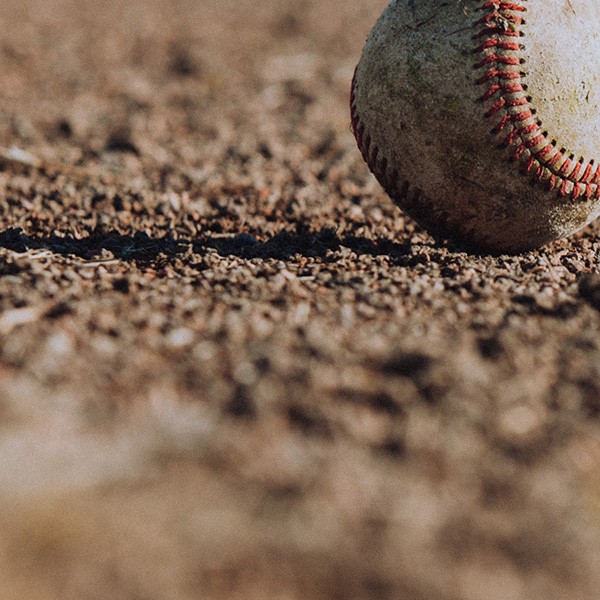No Baseball

There’s no baseball. No games, no innings, no at bats. And that means no scouts, no offers, no college.
Sophomore year the scouts had been there. They watched him hit a .548. Watched him crush twelve homeruns in twenty games. And he was stealing bases too, went error-free in the field, and demonstrated that x factor, that grit, that hustle.
“Five stars,” his dad would say to the scouts. “An all-around stud. Like Mike Trout, but faster on the base path.”
But then junior year and the ACL tear. It was a month before the season started. He was playing soccer with Vinny and Vinny’s little brother. It was stupid.
“Recover, train,” his dad told him. “Rebuild yourself like the bionic man. Maybe you don’t get the first offers, but you still have a year. Your senior year. Your best year.”
He started his comeback story with the surgery and physical therapy. Then came the strength training and the day he got back into the batting cage. He was ready for his senior season, but then came Corona, or COVID, or whatever they were calling it now.
His friends loved the new normal. They got to sleep late and take tests on theirs couches. They didn’t have to listen to Mrs. Rosetti scream about putting away their phones or Mr. Wright whine that no one could think critically anymore. They didn’t have to go to school, and that made everything better.
But no school meant no baseball. No games, no innings, no at bats. No chance to demonstrate his prowess, to show what he had to offer. And what could he show the colleges without baseball? His GPA? His SAT scores? His twenty-thousand kills in Call of Duty?
The first two were below average, and the third? No college gave a shit about that. Nobody gave a shit about that except Vinny and his little brother. They said his skills were legendary and referred to him as “Squad Leader” over their PlayStation headsets.
His dad said he should start at community college and get some gen ed classes done. He could keep training and put together a video for the scouts.
“Your own personal Web Gems,” he said. “The Top 10 featuring you, you, and you. We’ll throw it on YouTube!”
He didn’t know how his dad maintained his optimism. He’d lost his job two months into the quarantine. A restaurant supply company didn’t need a Manger of Logistics when there were no restaurants to supply.
His mom still had her job—what she called the gift and the curse of being an RN during a pandemic—so they weren’t going to lose their house or anything, but they did need to make some changes. There’d be no more pizza and wings on Friday nights, no vacations for the foreseeable future, and no more cable.
He thought he’d miss cable, but cable had been for baseball. It had been for games and highlights and the endless commentaries, the ones that could make him laugh or cringe or whistle in awe. Cable was for keeping up on rivalries and pennant races, hot streaks and slumps. It was for watching plays at the plate, line drives through the gap, and pitchers eye-fucking base runners as they led off first. So who cared about the cable.
What he cared about was forgetting. He wanted to forget this pause in his life, the way some illness had shoved him to the back of the line, the way it had said the door might not be open by the time he made it back to the front.
But how could he forget without baseball? It was his head-clearer, his distraction, his Zen state. Baseball had helped him through his breakup with Madison, his F in chemistry, and that stupid ACL tear. Whether he was playing it, watching it, or talking about it during the weekly calls with his grandfather, it was his therapy. But it was gone. He couldn’t take the field, he couldn’t tune in for a 7:05 opening pitch, and his grandfather? He was another issue.
The old man had this way of making baseball sound like poetry. It was languid, summer evenings under the stadium lights, the ballet of a perfectly turned double play, and the crack of a bat signaling the start of a miraculous moment, a moment when thousands of strangers rise simultaneously and share in the same triumphant rush.
“Baseball is the great equalizer,” his grandfather would say.
But he wasn’t saying that now. Instead, he was ranting about the state of the country. He was saying it had lost its way, had neglected the people who’d founded it. He was claiming Trump was the only one who could guide it home. And the poetry was gone.
So where could he find relief? Call of the Duty and the race for twenty-five-thousand kills? That was all Vinny and his little brother wanted. They had him playing nearly six hours a day, starting after dinner each night and stopping long after dusk had given in to the dark.
The plastic controller gave him new callouses, ones different from the marks he’d earned from gripping a bat and palming a ball. But it was a way to eat up hours and exhaust his mind, a way to prepare him to sleep past noon and wake to a day when the news might come that the world was healthy, the doors were open, and the masks were off. A day when they’d trim the grass, paint the foul lines, and set the bases down. A day when he could say, “Remember when there was no baseball?”

